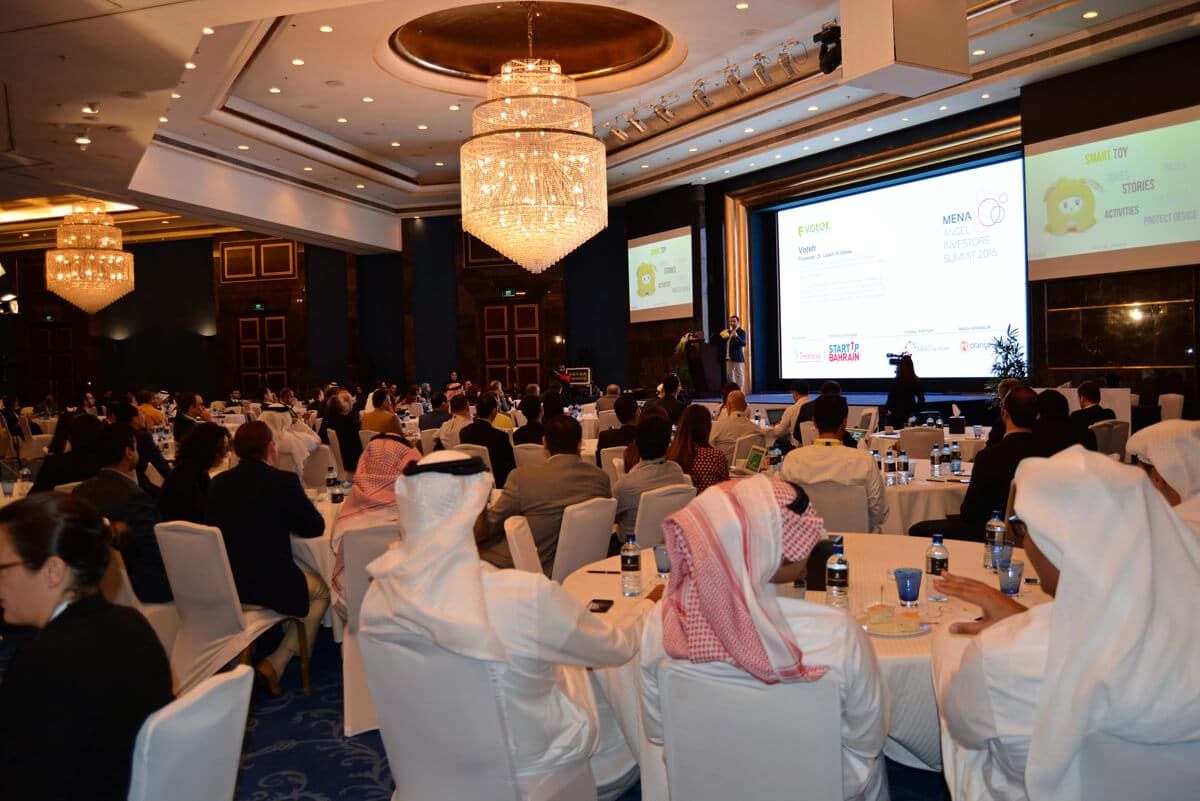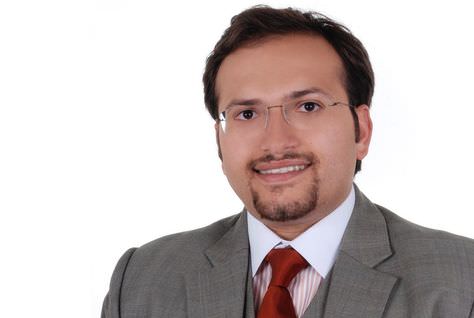Source: arabianbusiness.com
In its fifth year, MENA Angel Investor Summit 2016, organised by Tenmou and the Bahrain Economic Development Board (EDB), continues to grow the angel investment community in the MENA region. Its founder, Hasan Haider tells Tamara Pupic about the light ahead on the dark road faced by local entrepreneurs
Tenmou, Bahrain’s first formal angel group, held its fifth MENA Angel Investor Summit 2016, a gathering of venture capitalists, angel investors, and entrepreneurs, in Manama, Bahrain, in November. For its chief executive, Hasan Haider much has changed since 2010 when he started building the group from scratch.
Haider made a decision to permanently alter the way local businessmen viewed investing in tech start-up ideas as he watched his first company crumble.
It was when Film2go, a Manama-based start-up he set up in 2007 to provide online DVD rentals with free delivery and pickup, was struggling. Although it was generating BHD 5,280 ($14,000) a month, the young entrepreneur needed both capital and guidance to take the company to the next level.
“I took out a loan and that was the stupidest thing I could have done,” Haider says to a group of journalists on the sidelines of the MENA Angel Investor Summit 2016. “When you run a rapidly growing start-up, you don’t really have much in terms of free cash flow. If you don’t have free cash flow, you don’t have money to pay off a bank loan. So, yes, I should not have done that. I’m still paying for it.”
His pursuit for funding led him to Sami Jalal, a prominent Bahraini businessman who is now the chairman of Tenmou. Instead of money, Jalal offered mentorship.
“He advised me quite a lot,” explains Haider. “That is how I realised how important it was. Even though he wasn’t in the same industry, he had experience in business and that helped quite a lot. I managed to reduce my expenses quite significantly and I was operationally more efficient. It just made me think in the right sort of mind-set. If I had that from the beginning, I would be much richer now and not be paying off loans.”
Jalal and Haider teamed up to blaze a trail for wealthy individuals to invest in young entrepreneurs in Bahrain. Five years later, their group of 16 investors has supported 23 local start-ups.
“It was not easy,” he says. “We spoke to about 40 families, and we got 16 on board out of those 40. We didn’t ask for much, but for about BHD 49,034 ($130,000) per investor. If you want to be an angel investor, put your money where your mouth is and commit it to the fund.
“Unfortunately, what often happens in our region is that people will commit, but not actually write the cheque and disappear when it is time to get the money. So, we understood the mentality of investors here. We decided not to have a loose network, but create a pool of pre-committed capital. So, when we need to invest, we can just write a cheque out of the holding company.”
Established with a start-up capital of BHD1 million ($2.7 million), Tenmou aims to support entrepreneurs with business assistance, including financial investment advice, mentorship, and practical guidance. The group invests an average of BHD20,000 ($53,024) to BHD30,000 ($79,536) for a stake of 20 percent to 30 percent in each project that meets its criteria. In addition, they provide a three-month mentorship programme, including support services, at no cost to the entrepreneurs.

“It is not the best financial investment to make, especially when you are comparing it to other assets in this region. Real estate is here probably what many investors focus on because it generates significant returns. So, you can’t argue with them on that.
“However, people do it from a financial perspective because if they have built a large enough portfolio, they will probably be able to generate returns. To achieve that, they need to do like 30 to 40 investments to have a chance of getting those returns.
“So, our work is more about looking for people that have the right mind-set and the right approach to it. Those who know that it is very risky but are nevertheless willing to invest, help and support.”
Haider is also a venture partner for MENA region at 500 Startups, one of the most active venture capital firms in the world.
He adds that for now the number of start-up founders far exceeds the number of investors. The country’s skilled domestic workforce is increasingly willing to venture into entrepreneurship, taking advantage of the kingdom’s much lower operating and entry costs when compared to its regional neighbours.
The Bahraini government has launched a number of initiatives to support new ventures, including Tamkeen, an independent authority offering specific programmes and support to SMEs. Tamkeen also hosts the annual Bahrain Award for Entrepreneurship in partnership with the Bahrain Development Bank and the Bahrain Economic Development Board (EDB).
Due to the government’s efforts, the kingdom was ranked high in the WEF Global Networked Readiness Index 2016, 28 out of 139 countries worldwide. Also, Bahrain has remained among the world’s top 35 economies ranked by the World Economic Forum’s (WEF) Global Information Technology Report of 2016 for the seventh consecutive year.
In 2015 Tenmou launched a co-working space on the 8th floor at National Bank of Bahrain(NBB) Tower to facilitate the hosting of several events, such as mentorship Mondays, and weekly and monthly sessions with Bahraini entrepreneurs.
The objective of Tenmou is to follow in the government’s footsteps and generate an equal amount of support for start-ups from local high-net worth individuals willing to invest their time and money in new businesses. Until then, he says their international peers will continue keeping an eye on MENA entrepreneurs.
“I think we are looking at buy-outs from other markets that are trying to acquire market shares in the Middle East,” he says when asked about 2017 trends he anticipates. “That is what has been happening in the last few years so I think that is what is going to continue as a trend.
“I think it will mostly be done by international players, since regional corporates still haven’t started to look at companies as potential acquisition targets. It is starting to emerge, you’re starting to see one or two that are looking at it, but there still isn’t that much in terms of serious interest to be active in the MENA space.
“What I think we’re going to see in the region mostly is going to be European investors, who are looking to enter a new high-growth market, coming into the Middle East because it is quite close geographically and it is a much faster growing market than their own markets.
“We are also probably going to see acquisitions from South Korea and China in the next year. They have started to look around, so I think that is likely. And there are some companies, such as Zomato and others that have actively gone into the Middle East from India, so there might be a potential for them to acquire more MENA companies as well, although I’m not sure if that is going to be soon. I think that is probably in a longer term.”

